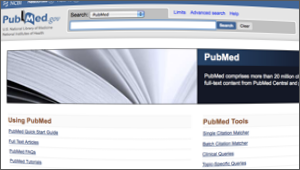 I think that there’s a little engineer in every scientist. In the scientific pursuit for knowledge, we often find ourselves optimizing, refining, and generally improving the ways we perform our research. Some ideas we can act upon ourselves by, for example, altering our methods or protocols. Others innovations are not so simple – concepts for improvements to products or for entirely new tools with which to perform our work.
I think that there’s a little engineer in every scientist. In the scientific pursuit for knowledge, we often find ourselves optimizing, refining, and generally improving the ways we perform our research. Some ideas we can act upon ourselves by, for example, altering our methods or protocols. Others innovations are not so simple – concepts for improvements to products or for entirely new tools with which to perform our work.
Innovation: Acting on Your Ideas
by
Words Your Boss Will Never Say
by
 Studies have shown that regardless of the industry, more than seventy five percent of employees list dealing with their immediate boss as the most stressful part of their job (Sutton, 2010). When asked to ‘rate your boss‘, we found over sixty percent of scientists would give their boss a C grade or worse. With a work environment like this, it’s obvious there are a few phrases most of us will never hear from our boss- ever.
Studies have shown that regardless of the industry, more than seventy five percent of employees list dealing with their immediate boss as the most stressful part of their job (Sutton, 2010). When asked to ‘rate your boss‘, we found over sixty percent of scientists would give their boss a C grade or worse. With a work environment like this, it’s obvious there are a few phrases most of us will never hear from our boss- ever.
The Art of Organizing Your Literature
by
 In the last post, we explored the use of bibliographic databases to locate papers and articles. In this final post we will look at ways in which to organize what you’ve found.
In the last post, we explored the use of bibliographic databases to locate papers and articles. In this final post we will look at ways in which to organize what you’ve found.
The Path to Happiness in Research
by
 For thousands of years, philosophers, psychiatrists and Eli Lilly have attempted to define the path to happiness, but remarkably, a singular solution remains elusive. Yet finding daily happiness in the lab is key to our success as the process of discovery is long, arduous and will try the patience of even the most dedicated researchers. In hopes of empowering scientists at the bench, we present the BenchFly Theory of Lab Happiness.
For thousands of years, philosophers, psychiatrists and Eli Lilly have attempted to define the path to happiness, but remarkably, a singular solution remains elusive. Yet finding daily happiness in the lab is key to our success as the process of discovery is long, arduous and will try the patience of even the most dedicated researchers. In hopes of empowering scientists at the bench, we present the BenchFly Theory of Lab Happiness.
I Have No Graduate School Regrets… Except This One.
by
 Mark Twain once stated, “Twenty years from now you will be more disappointed by the things you didn’t do than by the ones you did do. So throw off the bowlines. Sail away from the safe harbor. Catch the trade winds in your sails. Explore. Dream. Discover.” Sage advice. While spending time agonizing over missed opportunities in the past may not be the best use of our time in the present, a quick post mortem on our graduate school experience may help current students avoid some of the same mistakes we made.
Mark Twain once stated, “Twenty years from now you will be more disappointed by the things you didn’t do than by the ones you did do. So throw off the bowlines. Sail away from the safe harbor. Catch the trade winds in your sails. Explore. Dream. Discover.” Sage advice. While spending time agonizing over missed opportunities in the past may not be the best use of our time in the present, a quick post mortem on our graduate school experience may help current students avoid some of the same mistakes we made.
3 Steps to Mastering Literature Searches
by
 Google and Yahoo make it easy to search the web, whatever you’re looking for you’ll probably find something out there! Thorough searching of bibliographic databases however requires a little more effort, although this is repaid by the quality of the material retrieved. In this post we will be looking at how to search a bibliographic database. All bibliographic databases are different, but many of the same general principles apply. Here, we will look at PubMed which is a freely available and covers journals in life sciences and medicine.
Google and Yahoo make it easy to search the web, whatever you’re looking for you’ll probably find something out there! Thorough searching of bibliographic databases however requires a little more effort, although this is repaid by the quality of the material retrieved. In this post we will be looking at how to search a bibliographic database. All bibliographic databases are different, but many of the same general principles apply. Here, we will look at PubMed which is a freely available and covers journals in life sciences and medicine.
Group Meeting Bingo!
by
The Job Hunt: Move With My Spouse or Chase a Paper?
by
I’m a third year postdoc with no first author papers, although we’ll be submitting a manuscript in the next year. My husband was just offered a position in another city and now I’m faced with the decision to move and change labs or try to stay and deal with the distance. How bad does a three year postdoc with no papers look on a CV? Any advice?
– Katelyn – Postdoc
Ask Me One More Time… I Dare You.
by
 Scientific research is fueled by a desire to answer questions – What is the molecular basis of disease? Can we use individual DNA sequences to personalize medical treatments? Does the world really need another ‘male enhancement drug’? But as we find out over time, not all questions are created equally…
Scientific research is fueled by a desire to answer questions – What is the molecular basis of disease? Can we use individual DNA sequences to personalize medical treatments? Does the world really need another ‘male enhancement drug’? But as we find out over time, not all questions are created equally…
Poverty Nutrition III: Empty Refrigerator Contingency Plan
by




